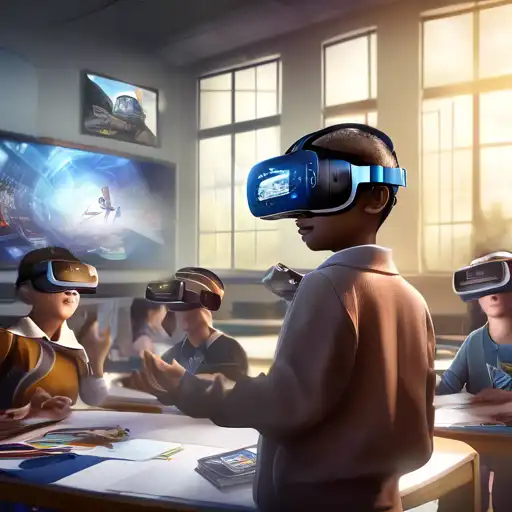Revolutionizing Learning: The Impact of Virtual Reality in Education
Virtual Reality (VR) is transforming the educational landscape, offering immersive learning experiences that were once unimaginable. This technology is not just a tool for entertainment but a powerful educational instrument that can enhance understanding, retention, and engagement among students of all ages.
The Benefits of VR in Education
VR in education brings numerous benefits, including:
- Enhanced Engagement: VR captivates students' attention like no other medium, making learning more interactive and enjoyable.
- Improved Retention: Immersive experiences help students retain information longer by experiencing rather than just reading or listening.
- Accessible Learning: VR can simulate environments and scenarios that are otherwise inaccessible to students, such as historical events or distant planets.
- Safe Practice Environment: It provides a risk-free platform for practicing skills, from surgical procedures to mechanical repairs.
Implementing VR in Classrooms
Integrating VR into educational settings requires careful planning and consideration. Schools and institutions must:
- Invest in quality VR hardware and software that aligns with their curriculum.
- Train educators on how to effectively use VR to enhance learning outcomes.
- Ensure content is age-appropriate and pedagogically sound.
For more insights on integrating technology in education, explore our education technology section.
Challenges and Considerations
Despite its potential, VR in education faces several challenges:
- Cost: High-quality VR equipment can be expensive, making it difficult for some institutions to adopt.
- Technical Issues: VR technology is still evolving, and technical glitches can disrupt learning.
- Health Concerns: Prolonged use of VR headsets can cause discomfort or motion sickness for some users.
The Future of VR in Education
The future of VR in education is bright, with advancements in technology making it more accessible and effective. As VR becomes more mainstream, we can expect to see:
- More affordable and user-friendly VR solutions tailored for educational purposes.
- Greater collaboration between educators and developers to create immersive, curriculum-aligned content.
- Increased research into the long-term effects of VR on learning and development.
Virtual Reality is ushering in a new era of education, where learning is not just about memorization but about experiencing and interacting with knowledge in a whole new way. As we continue to explore the possibilities of VR in education, it's clear that this technology has the potential to revolutionize how we teach and learn.
For further reading on innovative learning technologies, check out our innovative learning resources.
